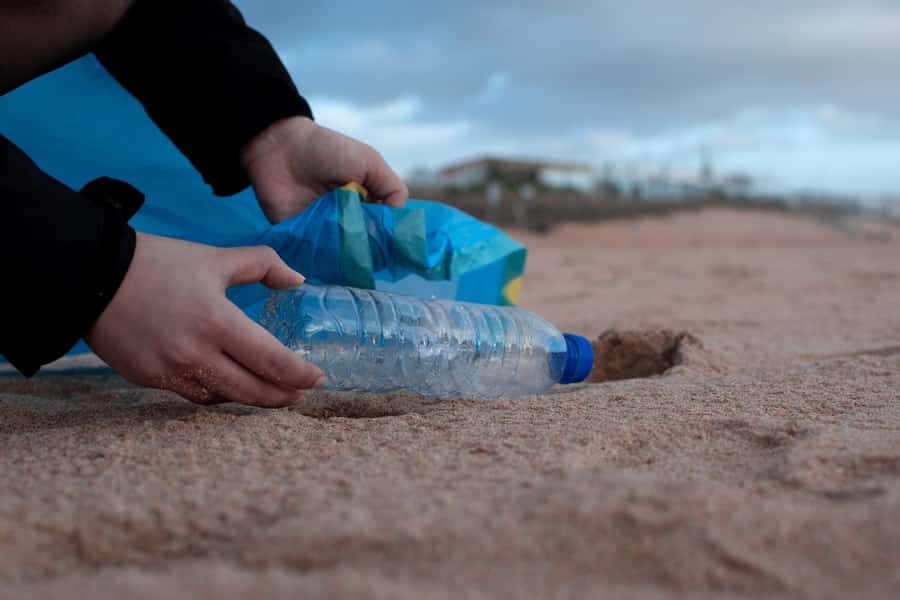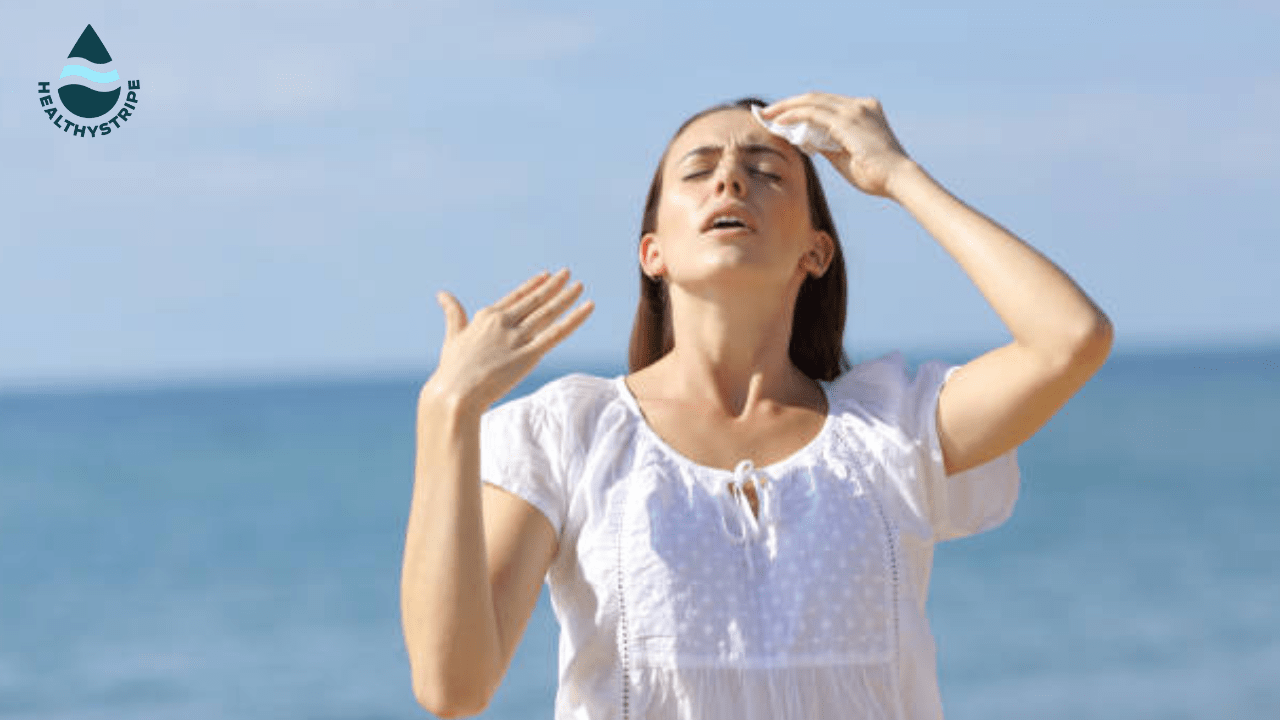Does Bottled Water Expire? Here is the Truth

As we all know the significance of water for our survival. It is a boon blessed to us on the earth’s planet. The unique properties of water make it different from other liquids. Whatever we use in daily life comes with its expiry date after which if consumed can cause illness.
Have you ever noticed the water expiry date on the mineral water bottle?
Almost all brands have started printing expiry dates on the water bottles which makes us question – is really water not safe after the expiration date?
Does bottled water expire?
If there is an expiry date, do you know if it is about the water or the bottle? Here you will find out the reason and truth behind the bottled water expiration date.
[lwptoc title=”Table of Contents”]
Does Tap Water Expire?
It has been found in research that tap water can be consumed safely for 6 months if stored properly. However, in carbonated tap water, gases start to evaporate leading to a bad taste. Carbon dioxide gas is present in the air and it mixes with the water if left open for longer. This results in the bad taste of regular tap water after a few days due to a high amount of carbon dioxide and a reduced amount of oxygen gas.
Carbon dioxide also results in a slightly acidic undertone of water. But the off-taste of both carbonated and plain tap water does not make water harmful and is safe to consume for up to 6 months. T
he thing you have to do to keep water drinkable and safe for at least 6 months is to store it in a dry, cold and dark place where the hygiene can be maintained.
To avoid any safety issue, you should dispose of your stored tap water and change that every six months.
Read More: Is Drinking Water Before Bed Healthy?
What is water expiration?
Can water expire? After a long and exhausting day of travelling, don’t be shocked if you pick up a water bottle and discover it has exceeded its expiration date. Bottled drinking water typically has an expiration date listed on the label. Not because the water gets contaminated. The usage of plastic bottles is to blame.
As it is a substance that naturally occurs, water in its purest form never goes bad. But, the pollution that degrades its quality is something to be worried about.
Drinking water from plastic bottles that are beyond their prime is never a good idea since the plastic can contaminate the water with dangerous substances like antimony and bisphenol A over time or as a result of temperature increases (BPA).
Expiration dates on Bottled Water
While the FDA determined that bottled water has an unlimited shelf life, you may frequently notice an expiration date on the bottle. Yet, does it mean water may become bad and “expire”?
Yes and no, I suppose. Although the water doesn’t spoil, with time chemicals from the plastic container may start to seep into the water and potentially change the flavour or odour of the liquid.
The International Bottled Water Association (IBWA) reports that some businesses continue to label water bottles with date-based lot identifiers to aid in the management of stock rotation at distribution and retail locations. Furthermore helpful in identifying contamination, product recalls, and bottling problems is this date-based lot code.
The IBWA claims that this date-based lot number does not have an expiration date and that customers may use it to make sure they eat the oldest goods first.
Shelf life of Bottled water
Can bottled water expire? It is unclear how long bottled water lasts because the FDA has declared that it is a packaged food with an unlimited shelf life.
It is advised to drink all opened bottles of water within two days of opening them for the greatest benefits. The water is probably still safe to drink after being exposed to air, although some individuals notice an unpleasant aftertaste.
By the suggested manufacturer’s expiration or “best by” date, the packaged bottled water is safe to consume. Drink the water in your water bottles before the two-year mark if they don’t contain expiration dates.
It may be safer to drink packaged bottled water even after two years or even after the expiration date if it is stored correctly for prolonged periods. Store bottled water in a place that’s cool, dry, and out of direct sunlight.
Can Expired Water Make You Sick?
Can you drink expired bottled water? Recall how the FDA doesn’t mandate the expiration dates on water bottles. Well, certain manufacturers still decide to add them.
The expiry date is used to maintain the highest quality and to specify the batch date rather than for safety concerns. You may get the best-tasting water if you drink it before it goes bad.
Mineral water that has been stored for a long period may occasionally provide concerns, even if drinking water that has beyond its expiration date is not thought to be a problem.
Chemicals from plastic bottles may leak into the water if they are exposed to high temperatures over an extended period. As was already noted, dangerous bottle contents that might cause heart and lung issues include the element antimony.
How to store Bottled Water?
Can water bottles expire? The most crucial step in preserving water for a longer time is to store it. The first step is to determine how much has to be kept, followed by choosing a cold, dry location.
Keep in mind that steel and copper are the best materials for long-term storage. One can always use glass bottles or BPA-free plastic containers for everyday usage.
One should avoid using pipes to fill containers and instead fill them straight from the faucet after filtering the water. Contamination can be readily prevented with this method.
To prevent contact with air, lids should always be on buckets or drums used to hold water. Washing the containers and the lid will further guarantee clean, high-quality drinking water.
Environmental Impact of Bottled Water Expiration
Carbon dioxide emissions and air pollution from shipping bottled water to market both are contributing to global warming.
The energy it takes to get the water to market, cool the bottles, and collect the remains is the energy equivalent to filling each bottle a fourth of the way with oil.
Many plastic bottles are burned, which releases hazardous pollutants into the air including chlorine gas and ash that is high in metals.
The Reason why there is a Bottled Water Expiration Date
There are certain reasons behind the water expiry date, and of course, those are logical. You will definitely get an answer for your question – “Does bottled water expire?”.
1) Government bureaucracy
It is compulsory for companies to disclose a list of ingredients, the nutritional value, and the expiry date for beverages and packed food.
2) Chemical Ingredients
Often bottled water at agencies and shops is kept under direct sunlight and due to this plastic can leach chemical ingredients into the water. Though this will not make the water toxic necessarily, it may make it taste slightly different from fresh mineral water. But precaution is a must, in simple terms, water does not expire, and plastic bottles expire.
Some of these chemical ingredients like biphenyl A and antimony is a hormone disruptors and may raise the chances of brain lining damage, breast cancer, heart diseases and infertility in men.
So, leaving bottled water under direct sunlight should be avoided or even inside your vehicle on a hot day and consuming it later.
3) Porous Nature of Plastic
The plastic used in making the water bottle is porous (permeable). Due to this, bottled water can pick up bad tastes, smells, and even microbes, if kept for a longer period.
While reusing plastic bottles, be sure to store them in a dark and cool place. It is advisable not to reuse these bottles for more than 15 – 20 days for drinking water.
4) Storage of Bottled Water
When it comes to storage of bottled water, it is advised to consumers to store mineral bottled water at room temperature (25oC) or cooler, away from direct sunlight and chemicals such as paint thinners, gasoline, dry cleaning chemicals, and household cleaners.
When we keep water containers open and store these containers in contaminated places, there are high chances of contamination of water.
The best thing to do, you should not keep water open after use and recap your water bottle and store it in the fridge to keep a crisp taste. You should go for sanitized food-grade and clean water containers for storing water.
Know More: Benefits of Drinking Water in Copper Vessels
So, Should You Drink Water After Expiry Date?
Even though bottled drinking water past the water expiry date is not considered an issue, storing mineral bottled water for a prolonged time might in some instances pose potential risks.
If the plastic bottle is exposed to high temperatures for longer, chemicals from plastic bottles may leach into the water. As mentioned above, metal antimony is present in bottle ingredients that are considered harmful and may lead to heart and lung problems.
Also Read: How to Fix Overhydration? Symptoms & Treatment
Takeaway
So, to the best of our knowledge, there is no information about the leaching of chemicals from plastic water bottles due to the impact of time. It is the conditions, mostly temperature that creates concern about the water expiry date. So, in future, if it comes to your mind “Does Bottled Water Expire?”, then keep in mind that it is the water bottle that expires, not the water, and that also depends on how those water bottles are stored.
FAQs
Is it safe to drink expired bottled water?
Although the FDA does not mandate a shelf life for bottled water, with time, hormone-like compounds can seep from plastic bottles. Always choose bottled water without BPA to lessen the risk of exposure to dangerous chemicals. Still, water should be used within two years.
How long can I keep bottled water before it goes bad?
Two years is the suggested expiration date. Although the U.S. Food and Drug Administration, which regulates bottled water, does not need a shelf life to be stated, we suggest following years for steady water and one year for sparkling water owing to plastic’s deterioration over time, especially in the heat.
What happens if you drink old water?
Diarrhoea, cramping in the abdomen, nausea, and vomiting are some of the signs of gastrointestinal sickness brought on by polluted water. You might not feel ill for a day or two after drinking contaminated water since such symptoms can take 24 to 48 hours to appear, according to Forni.
What is the shelf life of bottled water?
The recommended shelf life for still water is two years, and one year for sparkling water. The FDA does not state shelf life limits and water can be stored forever although bottled water plastic leaches with time and can impact flavour.
Can you get sick from drinking old bottled water?
Researchers have paid particular attention to the possibility that antimony, a compound included in many plastic bottles, might leach into the water if the container is exposed to high temperatures for an extended period.
How do I know if bottled water has expired?
Bottled water frequently has an expiration date imprinted on it, however it is not required. Bottled water may eventually start to include plastic, which might be harmful to your health.
Can you drink expired purified water?
Although the FDA doesn’t require bottled water to have an expiration date, it says it’s permissible to consume bottled water after it has expired if it’s been stored properly—even though the FDA outlines the reasons for the expiration date below.
How can I store bottled water to make it last longer?
Directly filling bottles or jugs from the tap. Each container should have a tight cap and the date stored written on it. Keep sealed containers in a cold, dry, and dark environment. If you haven’t utilized the water after six months, dump the containers and follow the instructions again.
Is bottled water environmentally friendly?
Bottled water requires fossil fuels throughout its entire life cycle, which leads to global warming and pollution.
What are some alternatives to bottled water?
Even longer than glass, stainless steel keeps the water and all other beverages cool. Metal naturally conducts temperature, so if it takes anything cold, it will hold it cold, and if it takes something hot, it will keep it hot. Some plant-based bottles are both biodegradable and edible.







